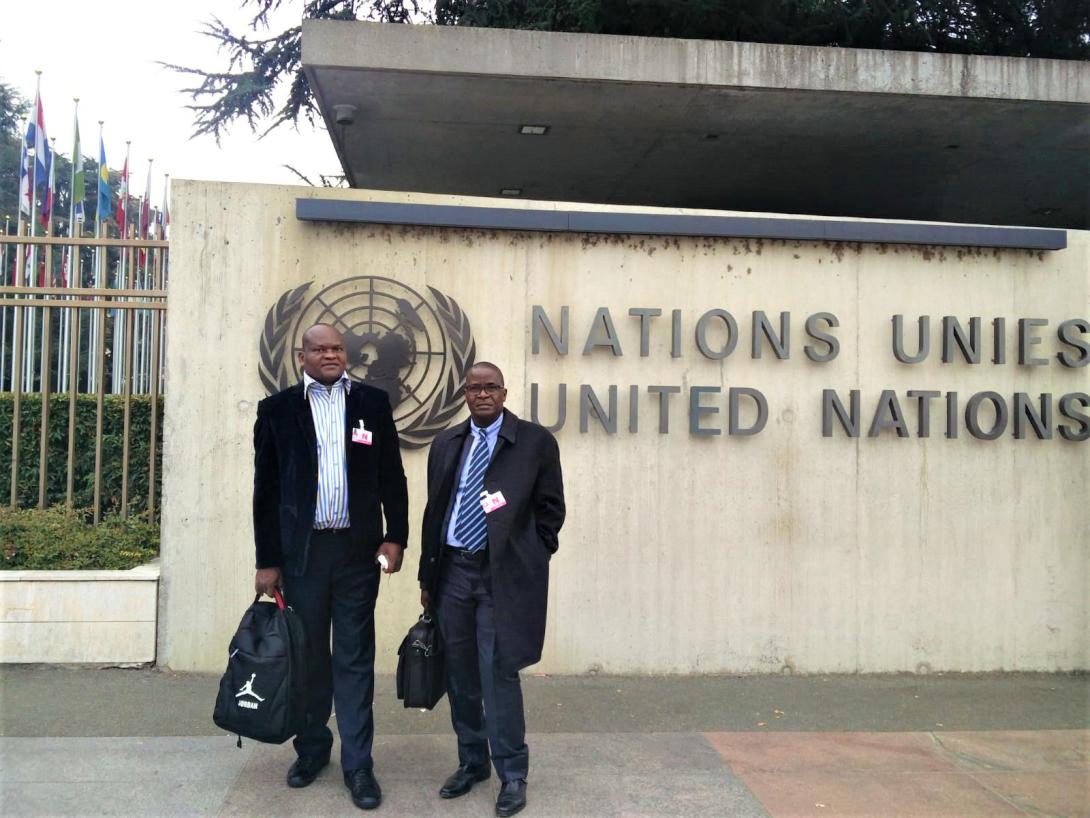
Children's Rights in the Republic of the Congo
Two of our partners, the REIPER (Réseau des Intervenants sur le Phénomène des Enfants en Rupture) and Handicap Afrique recently spoke at the United Nations, within the project "promotion, respect and support for children's rights" supported by European Union. They shared their vision of the situation of children's rights in the Republic of Congo. This pre-session was organized at the Human Rights Council as a preview of the Universal Periodic Review of the Republic of Congo which will take place on November 14, 2018.
Joseph Likibi, coordinator of the REIPER, opened the session by explaining that in the Republic of Congo a large legal arsenal for the protection of children exists, including the law n °4/2010 on child protection, which was passed in 2010. However, eight years later, these decrees have still not been signed and implemented. Today, the REIPER believes that it is essential that the Congolese State undertakes the implementation of these texts. Since 2010, the rights of children have been neglected due to a lack of knowledge of these rights by local authorities, as well as a lack of human and material resources. Children continue to be victims of violence and discrimination, and their rights to health and education, as described in the framework of this law, are not respected.
This was followed by a testimony of Mr. André Kabi, Director of the Congolese association, Handicap Afrique, on the dramatic situation of children living with a disability. In the Republic of Congo, having a disabled child is seen as a social disaster, a curse, a punishment from heaven, a spell. As a result, these children are ostracized, sometimes hidden by their family, sometimes kicked out of their family. They suffer from abuse of all kinds and in the worst cases are mutilated or killed by a family or community member.
Thus, Mr. Kabi says: "Rituals are sometimes organized in broad daylight, under the vision of all, children are thrown into the river because it is believed they would come from the river. When parents do not have the courage to act against their children, children with disabilities are killed by "specialists" that are found within the community. Otherwise, they let the child die by keeping him closed in a room without water or food until his forces are extinguished. [...] In the best case, the family breaks up under a pretext of witchcraft either from the child or from one of the parents. This leaves the parent who agrees to stay with his child in a terrible economic situation and the child with a feeling of guilt."
These tragic situations are known to all but remain taboo in the Congolese society; the weight of traditions being stronger than the existing laws.
Apprentis d'Auteuil, thanks to a solid experience in advocacy and a recognized status within the United Nations, can empower its partners and get their action recognized by their governments. International advocacy often remains the only way to governments’ reaction.